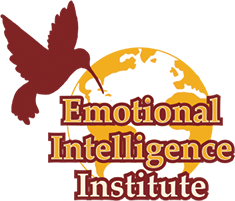Keys to a Healthier Life and
Professional Fulfillment:
Social-Emotional Knowledge and Skills
Learn the Importance of Social-Emotional Knowledge and Skills
Social-emotional knowledge and skills are significant contributors to fostering healthier mind development, as well as personal and professional relationships. Through such knowledge and skills, we improve the quality of our thoughts and behaviors. We acquire healthier identities, better manage emotions, and achieve more personal and professional fulfillment.
The competence level, as indicated by testing our social-emotional intelligence, defines our social-emotional quotient (SEQ), similar to how IQ tests reveal cognitive competence. Today, emotion is fundamentally recognized as the mind’s primary architect, subtly influencing nearly every idea, decision, action, and reaction we experience. Increasing our emotional awareness enables us to effectively manage how emotions impact our thoughts and behaviors. Conversely, a lack of emotional awareness hinders our ability to control these influences.
Learn How Studying SEQ Improves Personal Development
Learning social-emotional subject-matter and skills positively impacts our life by improving almost every aspect of mind development, including our ability to elevate our physical, mental, and emotional health in the following ways:
- Increase depth of self-understanding and self-honesty
- Empower overall motivation and attitude
- Enhance time management skills
- Improve ability to prioritize effectively
- Boost productivity through effective strategies
- Mitigate safety concerns
- Enhance decision-making and problem-solving skills
- Recognize and address behavioral quirks and dysfunctions
- Develop sound judgment and temperament
- Strengthen ability to cope with life’s challenges
- Improve physical self-care practices
- Recognize when to seek counseling
Learn How Studying SEQ Improves Personal and Professional Relationships
Learning social-emotional subject-matter and skills helps cultivate healthier relationships and reduces unnecessary conflict. This, in turn, creates a more harmonious personal and professional environment. Through such study, we learn to:
- Communicate more meaningfully and effectively
- Better understand the impact of our behavior on others
- Treat others with more respect, kindness, and fairness
- Collaborate more effectively with others
- Better understand and manage feelings toward others
- Resolve conflicts fairly with more psychological dexterity
- Empathize more easily with those who are struggling
- Contribute to a healthier society and planet
- Determine opinions and perspectives more cautiously
- More carefully prioritize the safety of others
- Recognize and avoid individuals with ill-intentions
- Maintain healthier boundaries
Learn How Studying SEQ Improves Overall Society
Communities, nations, and even the global community benefit greatly when Individuals, from youth to adults, are equipped with social-emotional knowledge and skills. This education helps mitigate everyday frustrations, depression, and dysfunction, thereby reducing issues like neglect, abuse, and divorce within societies. Furthermore, it curbs broader societal challenges such as unemployment, lawsuits, accidents, diseases, global tensions, wastefulness, and even criminal behavior is mitigated.
Insurance companies, businesses, and governments have often borne the costs resulting from societal gaps in psychological understanding. Developing healthier relationships and enhancing self-management improves societal well-being across the board.
Communities and nations that integrate social-emotional education into their school programs ultimately foster a more emotionally healthy and harmonious society. This addition contributes to enhanced productivity, improved job performance, and a healthier work environment, while also promoting overall happiness and fulfillment. Students studying and exercising SEQ behavior are more likely to succeed academically and professionally, as well as cultivate meaningful relationships.
By improving our SEQ, we have the potential to create a safer, more empathetic, wiser, and healthier society where we demonstrate greater self-awareness, self-regulation, social awareness, empathy, relationship management, and overall security.
Learn How to Start Improving Your Own SEQ
1. Seek Professional Training: It is essential to incorporate social-emotional education into any curriculum, as SEQ can be improved from structured training, practice, and experience. Professional guidance accelerates this process by offering expert instruction tailored to navigating the complexities of mind development, enhancing emotional and cognitive growth, as well as promoting safety and nutrition.
Explore the resources available on our website, especially our comprehensive FREE program for individuals to develop social-emotional knowledge and skills at their own pace. This program includes essential lessons on a myriad of social-emotional topics, supplemented with engaging activities, resources, and quizzes designed to stimulate emotional growth.
2. Increase Time and Effort Toward Improving SEQ:
- Initiative: Prioritize dedicating time and effort to practice and enhance your SEQ. Understanding how emotions can either facilitate or hinder learning is crucial in the early stages
- Practice: Regularly engage in activities that cultivate higher SEQ, as these skills require consistent application.
- Self-Reflection: Since self-awareness is one of the first steps toward improving our social-emotional knowledge and skills, it is important to learn techniques that help us reflect on thoughts, feelings, actions and reactions.
- Self-Monitoring: Monitoring our thoughts, feelings, actions, and reactions helps us identify and address areas for social-emotional improvement.
- Familiarization/Memorization: Like any learning process, mastering important social-emotional knowledge and skills requires familiarity and retention.
- Self-Honesty: Acknowledge personal thought patterns and behavioral quirks to replace them with healthier alternatives.
3. Learn Effective and Congenial Communication: Enhance active listening skills, articulate thoughts assertively, and communicate needs and boundaries effectively. Cultivate engaging and compassionate communication to enrich relationships and conversations.
4. Learn Skillful Conflict Resolution: Acquire strategies to navigate challenging situations calmly and constructively, resolving conflicts with respect and understanding. Develop the ability to manage disagreements gracefully for mutually beneficial outcomes.
5. Improve Prioritization and Situational Awareness: Learn to identify and prioritize tasks effectively, addressing them promptly even when challenging. Gain insights into situational awareness to manage time, energy, and finances efficiently.
6. Enhance Professional Behavior: Leverage personal improvements in SEQ to enhance job performance, problem-solving abilities, decision-making processes, and professional relationships.
Social-emotional knowledge and skills are essential for the development of healthier minds, especially psychologically. Through targeted programs, we foster virtuous behavior and gain a deeper understanding of life’s meaning and purpose. For progress in mental health during the 21st century, continued education in social-emotional intelligence to increase SEQ is imperative.
